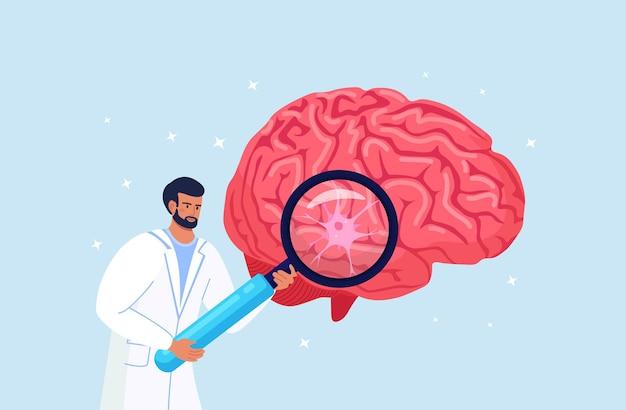Clinical psychology is a field that focuses on understanding and improving mental health and well-being. It plays a crucial role in helping individuals cope with psychological disorders and improving their quality of life. But what role does research play in this process?
Research, according to psychology, is the systematic investigation and analysis of information to expand knowledge and gain a deeper understanding of human behavior and mental processes. In clinical psychology, research is essential for several reasons.
Firstly, it allows psychologists to develop evidence-based interventions and treatment approaches. By conducting research studies, psychologists can identify which therapeutic techniques are effective in improving mental health outcomes. This ensures that individuals receive the most appropriate and beneficial care. In addition, ongoing research helps psychologists stay updated with the latest advancements in the field, enabling them to provide the best possible care to their clients.
In this blog post, we will explore the reasons why research is crucial in clinical psychology. We will also discuss the different research methods employed in the field and how psychologists gather and analyze data. So, let’s delve into the fascinating world of research in clinical psychology and understand its significance for better mental health outcomes.

Why Research is Vital in Clinical Psychology
In the ever-evolving world of clinical psychology, research plays a crucial role in shaping our understanding of human behavior and mental health. So, you may wonder, why is research important in clinical psychology? Well, grab a cup of coffee and let’s delve into the fascinating reasons why!
Expanding Knowledge and Evidence-Based Practices
Research in clinical psychology helps expand our knowledge and understanding of various psychological disorders, their causes, symptoms, and effective treatment approaches. By conducting rigorous studies and experiments, researchers gather invaluable data that helps us separate evidence-based practices from mere assumptions or popular beliefs.
Enhancing Treatment Efficiency
Imagine a clinical psychologist relying solely on their personal experiences and intuition instead of evidence-based research. It would be like a chef cooking without any recipe – you might get something edible, but the chances of it being a culinary masterpiece are pretty slim. Similarly, research allows psychologists to identify the most efficient and effective treatment methods, resulting in better outcomes for their clients.
Developing New Therapeutic Approaches
The field of clinical psychology is constantly evolving, driven by groundbreaking research. Innovative therapeutic approaches, such as cognitive-behavioral therapy or mindfulness-based interventions, stem from years of meticulous research and dedicated efforts to improve existing treatment options. Without research, we would be stuck in the dark ages, using outdated methods that may not yield the best results.
Assessing Treatment Efficacy
When it comes to mental health, one size does not fit all. Research helps establish the efficacy of different treatments by comparing their outcomes in controlled studies. By carefully analyzing the results, psychologists can determine which interventions work best for specific psychological disorders or populations. This information is invaluable for clinicians looking to provide the most effective care to their clients.
Uncovering Underlying Mechanisms
Understanding the underlying mechanisms of psychological disorders is like uncovering clues to solve a mystery. Research helps clinical psychologists explore the intricate workings of the human mind and identifies the biological, psychological, and social factors that contribute to mental health conditions. By elucidating these mechanisms, researchers can develop targeted interventions that directly address the root causes of psychological disorders.
Advancing the Field
In a rapidly changing world, research is the driving force behind advancements in clinical psychology. It enables psychologists to innovate, challenge existing theories, and pioneer new perspectives. By staying engaged with the latest studies and findings, clinicians can incorporate cutting-edge knowledge into their practice, leading to better outcomes and improved mental well-being for their clients.
Now that you understand why research is vital in clinical psychology, it’s clear that without research, the field would be stagnant and ill-equipped to address the complex challenges of mental health. The next time you meet a clinical psychologist, remember that behind their expertise lies a wealth of research and dedication to advancing the field. So, let’s raise a toast to research – the unsung hero of psychology!

FAQ: Why is research important in clinical psychology
What is research According to Psychology
In the fascinating world of psychology, research refers to the systematic investigation of various phenomena, aiming to expand our understanding of the human mind and behavior. It involves gathering and analyzing data to uncover valuable insights, test theories, and make evidence-based conclusions.
Why is research important in clinical psychology
Research holds a crucial role in clinical psychology, acting as the guiding light that illuminates our path towards effective mental health treatments. By delving deep into the intricacies of the human mind, research enables clinical psychologists to develop new therapies, refine existing approaches, and enhance patient care. In essence, it helps bridge the gap between theory and practical application, ensuring that clinical interventions are grounded in scientific evidence and tailored to individuals’ unique needs.
What are three most common research methods used in social psychology
-
Surveys: Surveys are like a box of chocolates – filled with questions instead of sweet treats! They involve collecting information from a large group of participants by asking them to respond to a series of carefully crafted questions. Surveys provide valuable insights into people’s thoughts, feelings, and behaviors, helping researchers unravel the mysteries of social psychology.
-
Experiments: Ah, the classic laboratory experiment! It’s like playing a game of chess with the human mind. Researchers manipulate variables, such as social situations or environmental cues, while carefully observing how these changes impact participants’ behavior. The beauty of experiments lies in their ability to establish cause-and-effect relationships, giving us a deeper understanding of how social factors influence our actions.
-
Observational Studies: Imagine being a fly on the wall, silently observing human interactions without disturbing the natural flow. That’s precisely what observational studies in social psychology accomplish! Researchers watch and record behavior in real-world settings, providing valuable insights into how individuals behave in their natural environments.
What are the different methods used in psychology
Psychological research is a diverse field, employing several methods to unlock the secrets of the human mind. Here are a few commonly used approaches:
-
Surveys and Questionnaires: Just like a friendly conversation, surveys and questionnaires allow researchers to gather information from a large number of people by asking thoughtful and well-crafted questions. They help explore attitudes, beliefs, and experiences across various domains of psychology.
-
Experiments: Ah, the epitome of scientific inquiry! In experiments, researchers manipulate variables to investigate cause-and-effect relationships. By carefully controlling conditions, they can draw solid conclusions about the effects of certain factors on human behavior or cognitive processes.
-
Observational Studies: Channel your inner Sherlock Holmes! Observational studies involve keenly observing and documenting behavior in natural settings, providing insights into human actions as they occur naturally.
-
Case Studies: Picture yourself as a detective, diving deep into the life of an individual or a small group. Case studies involve in-depth examination and analysis of unique cases, shedding light on rare phenomena or providing a rich understanding of specific individuals’ experiences.
Which of the following are three basic types of research used in psychology
-
Descriptive Research: Like a skilled painter capturing a scene, descriptive research aims to capture and describe current phenomena and behavior. It involves observing, recording, and analyzing behaviors without manipulating variables.
-
Correlational Research: Are two things related, or is it mere coincidence? Correlational research focuses on exploring relationships between variables without asserting causality. It helps identify patterns and associations, allowing researchers to make predictions or generate hypotheses.
-
Experimental Research: The gold standard of research methods! Experimental research involves manipulating variables and carefully controlling conditions to investigate cause-and-effect relationships. It enables researchers to draw confident conclusions about how one variable influences another.
Why do psychologists gather data
Psychologists aren’t hoarders, but they do love gathering data! Gathering data allows psychologists to gain insights, make informed decisions, and support their theoretical claims. By collecting information through various research methods, psychologists can identify patterns, test hypotheses, and ultimately enhance our understanding of the complex workings of the human mind and behavior.
How do you do research in psychology
Ah, the fascinating realm of psychological research awaits! To conduct research in psychology, follow these general steps:
-
Identify a Research Question: Determine the area you want to explore and formulate a specific research question that piques your curiosity.
-
Review Existing Knowledge: Dive into the vast sea of literature to learn what other researchers have already discovered. This helps you build upon previous findings and avoid reinventing the wheel.
-
Select a Research Method: Choose a research method that aligns with your question and objectives. Will you conduct surveys, experiments, or engage in detailed observations? The choice is yours!
-
Design Your Study: Map out the details of your study, including participant recruitment, procedures, and data collection methods. Remember to consider ethical guidelines to protect the well-being of your participants.
-
Collect and Analyze Data: It’s data collection time! Implement your study, collect the data you need, and then roll up your sleeves to analyze it. This often involves statistical analyses to make sense of the patterns and trends in your data.
-
Draw Conclusions and Share Findings: Analyze your results, draw conclusions, and determine the implications of your findings. Finally, share your knowledge with the world through presentations, academic papers, or even engaging blog posts!
Remember, research in psychology is an exciting journey of discovery. So, grab your metaphorical lab coat, put on your thinking cap, and delve into the wonderful world of psychological research!
